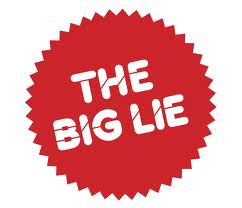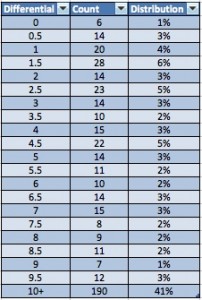Myth Busters: NBA market efficiency
By Matt L’Heureux
Follow him on twitter @EL_Apostrophe
We’ve all been there before: the dreaded sports loss decided by a half-point. Included in these gut wrenching losses are cases where an underdog misses the cover in overtime when a single point in regulation – one way or another – would have prevented the extra period. It’s brutal, but more importantly, it leaves a lasting memory ingrained in our gambling psyche.
There is no league where a loss by the hook is more excruciating than professional basketball. It’s a sport where teams score approximately one point per possession and possess the ball nearly 100 times per game. Without breaking a sweat, you can recall a dozen shots that rattled out (or in), questionable foul calls, and a toe on the line negating a three point shot. The phrase “game of inches” comes to mind.
By now you are nodding in agreement spouting out half-point NBA losses like they were bad beats at the poker table. (Translation: No one wants to hear about them) But how often does it really happen? Some argue that the NBA side market is too efficient to beat but I just think that the memories of losing basketball plays last longer and negatively alter our perception of reality.
For example, there have been 467 games played in the 2011-2012 NBA season through February 19. When comparing the final score to the prevailing closing line, 14 were decided by exactly a half-point. In fact, the average discrepancy between final score and closing line is a whopping 9.35 points through nearly two months in this lockout shortened season. This is roughly in line with what we’ve seen over recent years in the NBA, and guess what, it will continue to be around this mark for the foreseeable future.
The market is actually more inefficient than people believe however it doesnt change the fact every bettor’s primary goal should be to get the best number on every bet. There will always be a decent sized average variance between spread value and actual value in most NBA games so it just becomes the responsibility of the handicapper to find numbers he can exploit.














